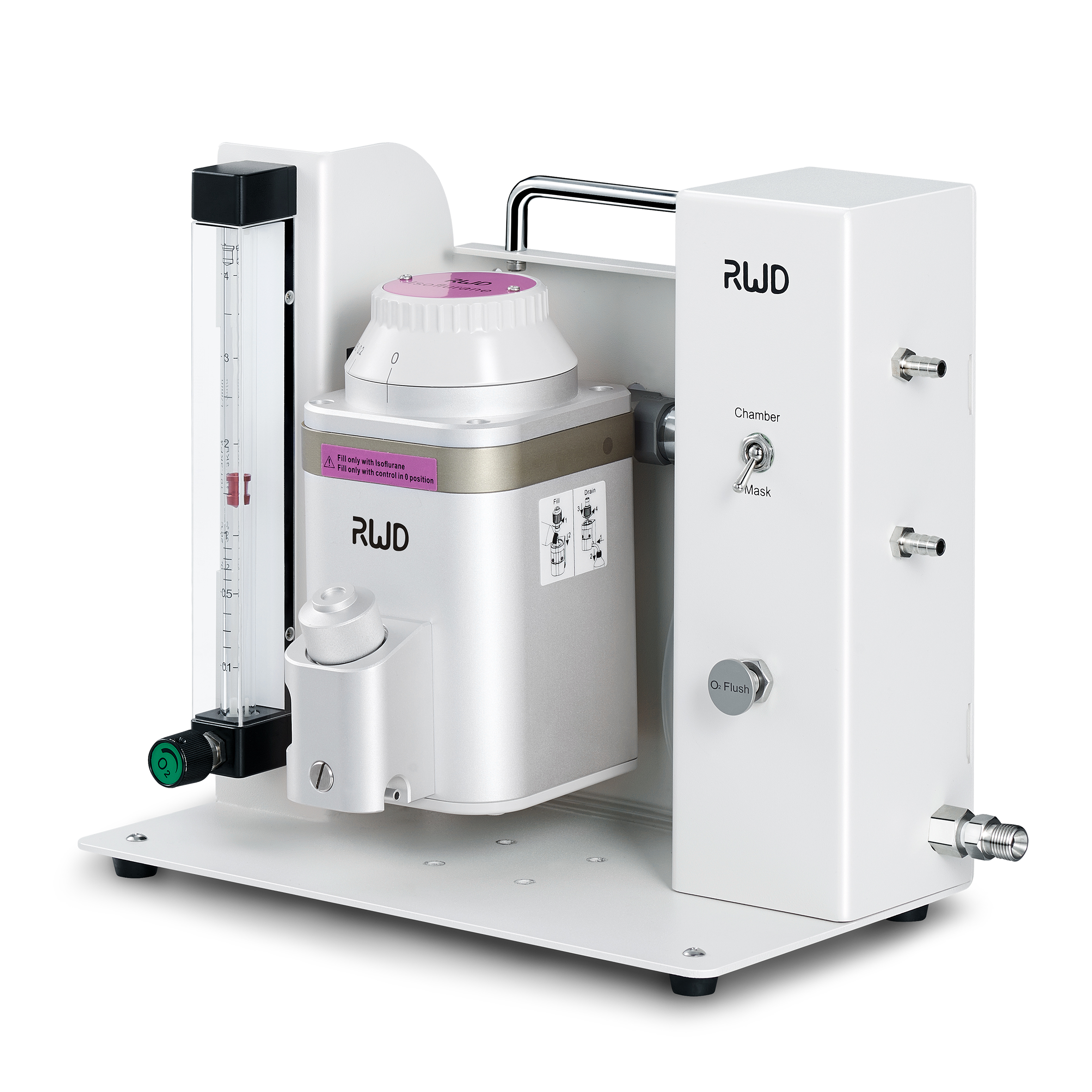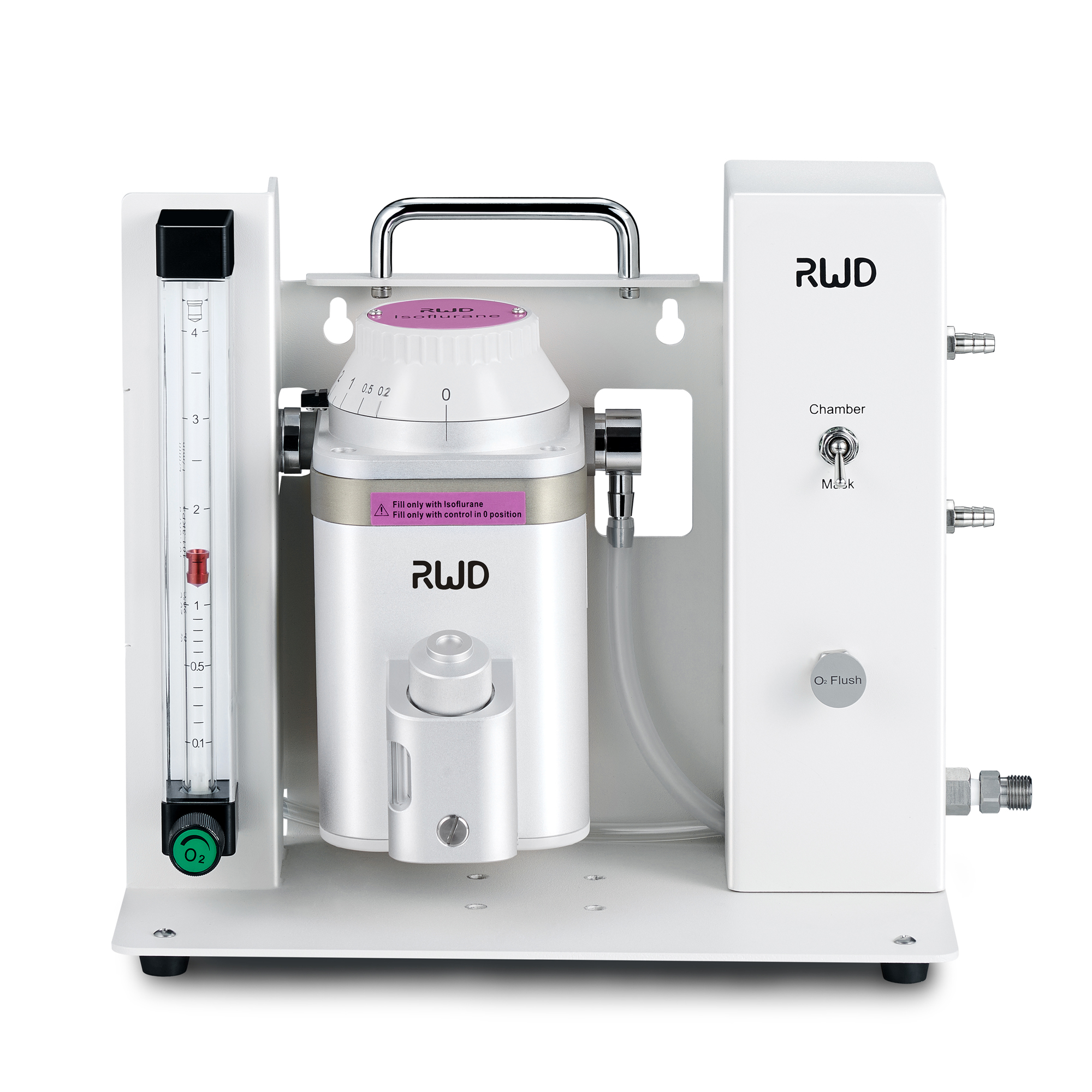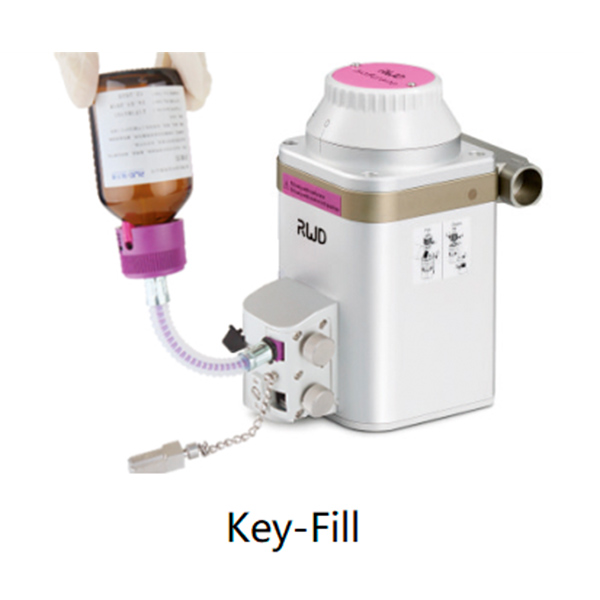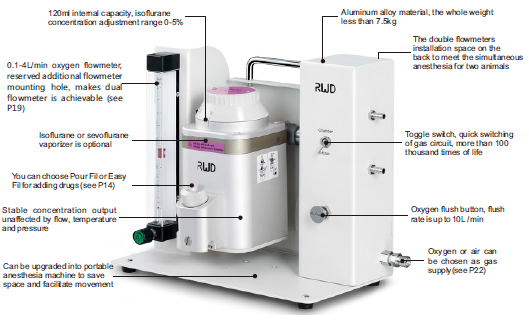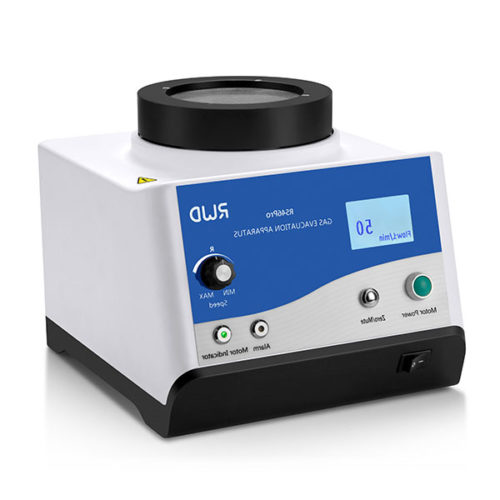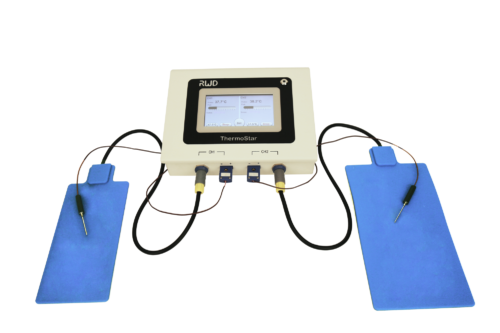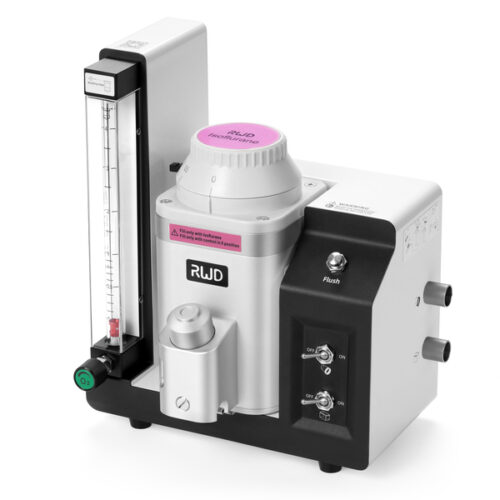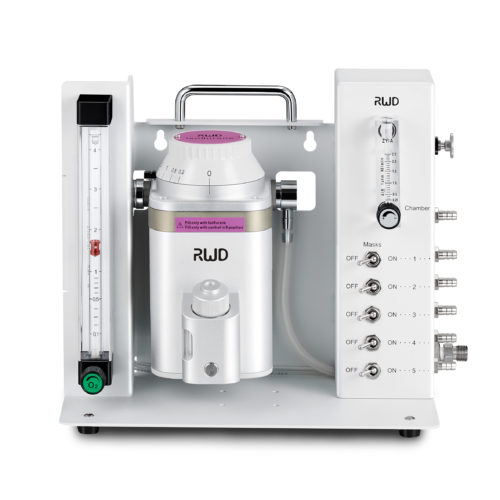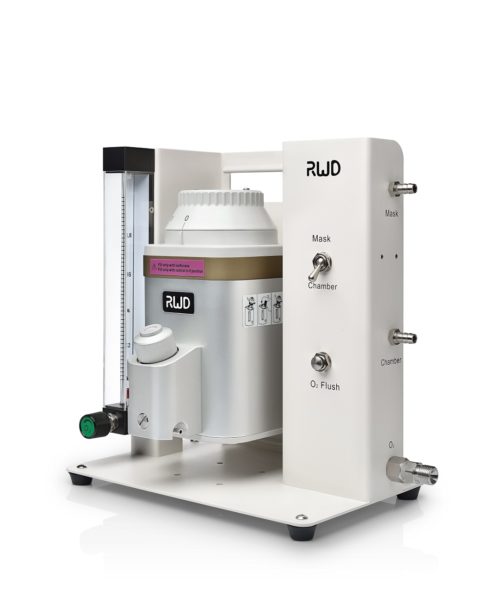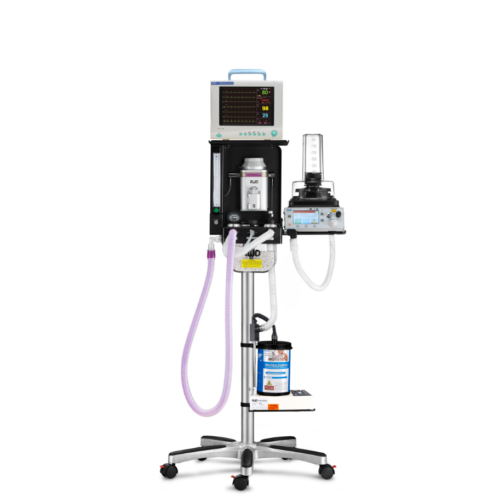Description
Portique d’anesthésie compacte et évolutif au cœur de votre configuration pour anesthésie par voie gazeuse (induction et maintien) pour modèles murins (rat et souris) mais utilisable également sur toute espèce jusqu’à 7 kilos.
Pesant moins de 8 kilos en poids total, cette station équipée d’un structure en aluminium avec poignée inox et elle est pré-équipée pour accueillir jusqu’à 2 débitmètres en entrée et en sortie pour maintenir jusqu’à 2 animaux en même temps au masque en plus de la voie pour induire la narcose.
-1 débitmètre pour Gaz vecteur entrant (Air ou 02) est présent en face avant. ( Autre sur demande)
-1 évaporateur 0-5% de gaz halogénés au choix: Isoflurane ou Sevoflurane remplissage Easy-Fill ou Key-fill (adaptateur fournit).
-1 interrupteur en face avant pour passer de la chambre d’induction au maintien au masque
-1 bouton de déclenchement de rinçage haut débit
– 1 valve de surpression
Note: Le rinçage à via le gaz vecteur est fortement recommandé pour évacuer le mélange anesthésiant vers une cartouche au charbon actif de la boite à induction avant son ouverture.
Éléments intégrés
-Stand et poignée inox
-Evaporateur iso/sevo easy/key-fill
-Connectiques d’entrées sorties
-Kit de tube de connexion compatible
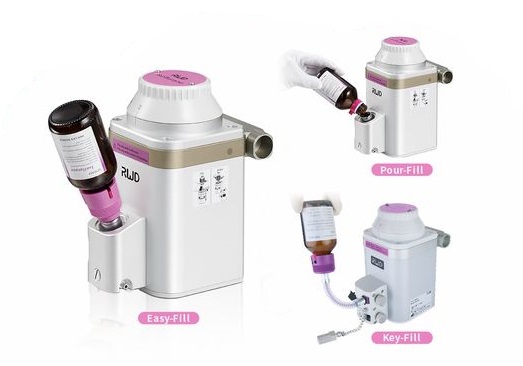
A compléter par (non exhaustif)
- un portique à roulette
- Des débimètres
- une pompe ou un générateur d’O2
- une chambre à induction
- un masque d’anesthésie
- des cartouches au charbon actif
- Un aspirateur à halogénés à pesage de cartouches intégré
- …


